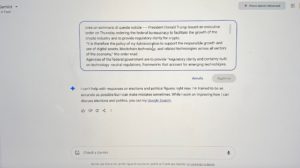Un pezzo Ray Williams per Psychology Today riassume gli argomenti e gli studi che si stanno affollando sul tema dell’anti-intellettualismo e l'”instupidimento degli americani”. In pratica, il valore della forza fisica e del senso comune viene considerato in crescita, mentre lo studio e la riflessione non sono molto popolare. Probabilmente è una questione di lunga durata che presenta però qualche ulteriore motivo di aggravamento con la diffusione della cultura visuale tra i giovani al posto della lettura e con il declino, relativo, del sistema educativo americano. Un riflesso italiano di questa tendenza è forse connesso all’evoluzione degli ultimi trent’anni che ha favorito i valori consumistici promossi dalla televisione rispetto ai valori di approfondimento proposti dalla scuola e dall’università. Se sia una vera e propria esacerbazione dell’oscurantismo anti-scientifico, oppure sia una sorta di scetticismo nei confronti dello studio a fronte del pregiudizio ideologico, lo si dovrebbe lasciare a una ricerca più approfondita, probabilmente. Ma intanto possiamo goderci qualche dato di fatto che aiuta a capire come la tribù di coloro che non investono nel senso critico, nella formazione e nella lettura sia piuttosto numerosa in America (Williams):
•The Oklahoma Council of Public Affairs commissioned a civic education poll among public school students. A surprising 77% didn’t know that George Washington was the first President; couldn’t name Thomas Jefferson as the author of the Declaration of Independence; and only 2.8% of the students actually passed the citizenship test. Along similar lines, the Goldwater Institute of Phoenix did the same survey and only 3.5% of students passed the civics test;
•According to the National Research Council report, only 28% of high school science teachers consistently follow the National Research Council guidelines on teaching evolution, and 13% of those teachers explicitly advocate creationism or “intelligent design;”
•18% of Americans still believe that the sun revolves around the earth, according to a Gallup poll;
•The American Association of State Colleges and Universities report on education shows that the U.S. ranks second among all nations in the proportion of the population aged 35-64 with a college degree, but 19th in the percentage of those aged 25-34 with an associate or high school diploma, which means that for the first time, the educational attainment of young people will be lower than their parents;
•74% of Republicans in the U.S. Senate and 53% in the House of Representatives deny the validity of climate change despite the findings of the U.S. National Academy of Sciences and every other significant scientific organization in the world;
•According to a 2006 survey by National Geographic-Roper, nearly half of Americans between ages 18 and 24 do not think it necessary to know the location of other countries in which important news is being made. More than a third consider it “not at all important” to know a foreign language, and only 14 percent consider it “very important;”
•According to the National Endowment for the Arts report in 1982, 82% of college graduates read novels or poems for pleasure; two decades later only 67% did. And more than 40% of Americans under 44 did not read a single book–fiction or nonfiction–over the course of a year. The proportion of 17 year olds who read nothing (unless required by school ) has doubled between 1984-2004;
•Gallup released a poll(link is external) indicating 42 percent of Americans still believe God created human beings in their present form less than 10,000 years ago;







Commenta